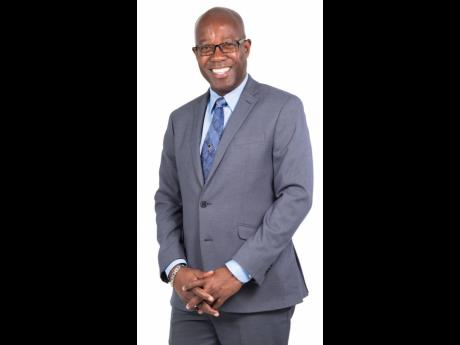Growth & Jobs | Consider life insurance to ease financial burdens associated with illness, death
HUGH REID, general manager, JN Life Insurance, says more consideration must be given to increasing the number of Jamaicans with life insurance. He argued that the low number of Jamaicans without adequate insurance and pension is concerning because of the implications it holds for many families and the economy.
The JN Life general manager said currently, more than 80 per cent of Jamaicans are without a pension plan and about the same, or even more, are either underinsured or without insurance. He explained that this means that several families are at risk of financial hardship if their breadwinners die or are diagnosed with a major illness.
“About 80 per cent of Jamaicans have no form of pension planning, and about the same are either underinsured or have no life insurance. The number of Jamaicans without a critical illness plan in place in the event of being diagnosed with a chronic illness is probably even higher. As a result, many families undergo serious financial hardship when a breadwinner dies or is diagnosed with a critical illness, as the cost of treatment will run into millions of dollars,” he said.
He noted that life insurance has many benefits to economies and families. Beyond the guarantee to pay a stated sum to family members who are the beneficiaries on the death of its income earner, cash value life insurance can serve as a means through which individuals save, because many persons who might not otherwise save consistently will, nonetheless, regularly pay their life insurance premiums.
He added that this can constitute a type of quasi-compulsory savings. Reid explained that products such as annuities provide a convenient, if not unique, means by which individuals can make financial provisions for retirement. Additionally, private life insurance can supplement, if not substitute for, benefits provided by government.
“In some cases, it might not be the breadwinner who is diagnosed, but the cost of treatment for that family member takes a heavy toll on the family’s finances and that family ends up in debt. When you look at those without any form of a pension plan or inadequate pension, it means many will have to depend on family or the State to survive, and this has wider implications for our economy, because the State will have to undertake the responsibility to provide for those in need,” he added.
Reid noted that one of the effects of having little or no insurance was that many families are robbed of loved ones whose deaths could have been prevented.
“In terms of critical illness insurance, every Jamaican needs at least two policies as, for example, a cancer diagnosis which involves surgery and chemotherapy/radiation could easily exceed $5 million if private health facilities are utilised. Unlike many policies on the market, JN has a critical illness policy that provides a recurrence benefit which allows customers to make multiple claims over time or for critical illnesses that recur. However, in many cases, many families lose loved ones whose deaths were preventable owing to the costs associated with treatment and not having insurance to cover them,” he added.
Reid added that insurance and pension should not be viewed as preparing for death, but rather, giving loved ones a chance at life.
“Having a pension is not just for those who are getting up in age. It is about securing a future for yourselves and loved ones. Similarly, insurance is a good way to assist you in terms of planning financially. It ensures that your family can cope should you be impacted by unfortunate events. Many of us should remember that the reason you buy life insurance is not because you are going to die, but because those who you love are going to live,” he said.

